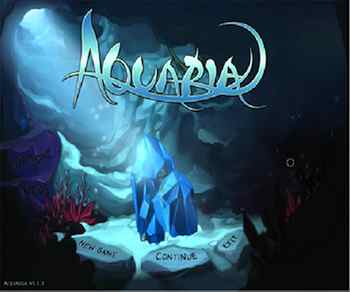- MENU
- HOME
- SEARCH
- WORLD
- MAIN
- AFRICA
- ASIA
- BALKANS
- EUROPE
- LATIN AMERICA
- MIDDLE EAST
- United Kingdom
- United States
- Argentina
- Australia
- Austria
- Benelux
- Brazil
- Canada
- China
- France
- Germany
- Greece
- Hungary
- India
- Indonesia
- Ireland
- Israel
- Italy
- Japan
- Korea
- Mexico
- New Zealand
- Pakistan
- Philippines
- Poland
- Russia
- South Africa
- Spain
- Taiwan
- Turkey
- USA
- BUSINESS
- WEALTH
- STOCKS
- TECH
- HEALTH
- LIFESTYLE
- ENTERTAINMENT
- SPORTS
- RSS
- iHaveNet.com: Video Games

It's impossible not to have fun with "Aquaria." It just does so much right
What do you get when you take the "Super Metroid"/"Castlevania" labyrinth dungeons, the "Ocarina of Time" musically themed action and puzzles, and add in about 200 billion gallons of sea water? You get "Aquaria," an indie game released in late 2007 that has gotten a second wind in the Humble Indie Bundle.
You play as Naija, an Aquarian with no memories who spends her days roaming her home waters. Visited by a ghostly vision, she is inspired to explore the outer waters of Aquaria to discover the truth behind the ruin and devastation that engulfs her home. The story is communicated almost entirely through voiceover, and Naija has plenty to say. Between lamenting the loss of a great city, marveling at underwater vegetation, and even being self-conscious about her appearance, Naija never stops talking. Thankfully, Jenna Sharpe's voice talents are well suited for the role, and never once becomes irritating.
Exploring the depths of Aquaria is nothing short of an absolute pleasure. With locales ranging from decrepit cathedrals, mechanical temples, to vibrant forests of kelp, developer Bit Blot treats you to a wide array of beautiful scenery. Not just beautiful, but super HD, as well. Running in 1600x1200, even when the camera zooms in, Aquaria never loses a smidgen of detail. Accompanying the excellent visuals is a score that manages to be both haunting and charming, perfectly capturing the mood of each location Naija travels to.
To make her way around the expansive depths, Naija makes use of multiple forms (not unlike "Symphony of the Night's" fog, wolf, bat, etc.) that grant her different abilities. Some abilities are primarily for fighting, such as Naija's energy form, but each one provides a useful technique to solve puzzles.
Where in other games these abilities would be used once and then never again, Aquaria forces you to use your head and switch back and forth between forms constantly to become successful. This keeps gameplay fresh and provides for discovering fun, unique ways to take out your enemies, which is a good thing as the endgame area is challenging.
Doubly fun is Aquaria's cooking system. Health is recovered by eating food, and food is created by cooking ingredients discovered across the ocean. While Naija discovers recipes that direct you to successful concoctions, you can mix and match on your own as well (but not always with tasty results).
If I had one gripe with Aquaria, it would be the same issue I have with recent "Castlevanias": the backtracking. Aquaria will constantly force you to backtrack for long periods of time (one boss battle actually shoots you out of a temple if you screw up, and you have to head through the entire place a second time just to get back). While there are warp turtles to cut the time down, a large portion of my playthrough was spent in travel. And as unique each area is from the others, there is little variation inside the zones, leaving you with little to no landmarks to guide your way. Be prepared to check your map. Often.
Once the main game is finished, there is still plenty of Aquaria left to play. The expanse of the ocean features many secret areas and goodies, such as a race track, "Simon Says" minigame and a difficult climb far beyond the ocean surface. As much as I have already found, I can't shake the feeling that I have missed some content.
Aquaria does nothing to hide the fact that it is a "Metroidvania" game: save coffins are replaced by save crystals, warp gates are replaced by ancient turtles, familiars replaced by pets (and buddy, Li), etc. But despite the fact that Aquaria does little in the way of innovation, it remains fun by keeping to tradition and presenting a tried-and-true formula in a new way.
It's impossible not to have fun with this game. It just does so much right.
Available at Amazon.com:
Article: Copyright © iHaveNet
Video Games: Aquaria
Article: Copyright © Tribune Media Services